“It’s Important Who The Fuck These Surfers Are, Because They Form Who You Are”
Legacy surf journo Matt George speaks on his new book ‘In Deep’ — the literary culmination of four decades spent cataloging surf culture.
Click here to purchase In Deep: The Collected Surf Writings
Imagine it’s the year 2035 and Kelly Slater is fat. With no last vestige of cultural relevance, he spends his days carting himself around a Floridian Costco with his belly spilling over his electric wheelchair. No one cares. Surfing is dead.
Today, the elder generations fear for the future, for the death of the core surfer and culture as they know it. Fear that future generations will be nothing more than soft, wet croutons flailing around in pea soup.
Though that’s on the dramatic end of the spectrum, it’s natural to be nostalgic for the past, and anxious for the unknowns of the future. Every generation seems to believe the glory days are long gone.
This is part of my intrigue in getting to know surf writer Matt George. I wouldn’t describe him as a cynical old dog, but he’s certainly stirring the conversation regarding past and future, while asking us to take an honest look at how we relate to this thing which we hold as so important.
He has the heart of a sensei. I’ve just met the man and he speaks to me as if I am his student in need of urgent wisdom. “Surfing is out of time,” he says. “And we’ve gotta publish these cave paintings before they’re lost forever.” He throws me into his surf journalism dojo with intensity, palms pressed to the table during his most passionate moments of speech, and schools me for not having a pen and notebook on my person for the spontaneous interview he suggests we do, “right here, right now.”
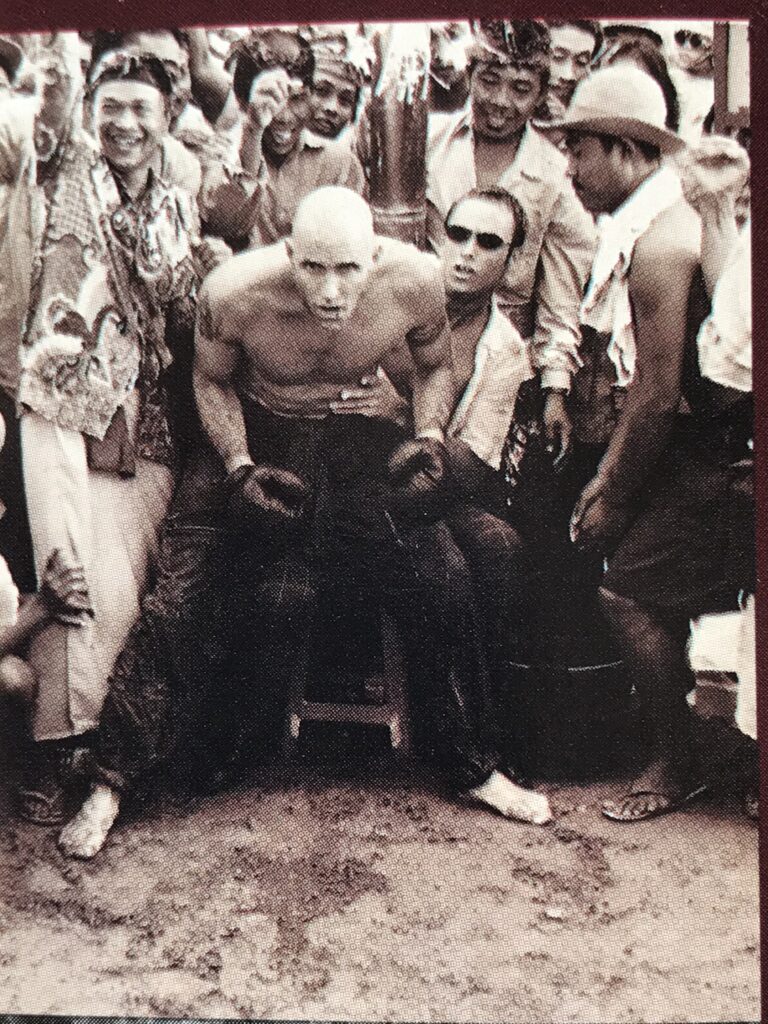
We sit outside White Monkey Surf Shop in Padang Padang, Bali, where the 64-year-old holds down the fort as a part-time manager. “I’m not really a store manager, I’m just helping out a friend,” he says. “I’m actually retired,” he jokes. Minutes later when I joke back about his retirement, he gets very serious again. “I am a professional writer, and I am not retired in any way.”
The former Senior Contributing Editor of Surfer Magazine has been actively writing for every major surf publication for the last forty-odd years. His newly published book, In Deep: The Collected Surf Writings, is a non-chronological selection of some of his career’s most iconic surf journalism pieces, which he refers to as “cave paintings from the greatest epoch of surfing that will ever exist.” It also has a foreword from Kelly Slater.
I ask him why it was the greatest era. ““It was the like World War II generation; all their sacrifices, the belief that they were saving the world. In many ways that was how our generation felt about surfing. And it happened to be bracketed by the rise and dominance of Kelly Slater. That’s why he’s peppered throughout the book. Our generation from 1981 until when Kelly won the Pipeline Masters at fifty years old, there’s the epoch, there’s the era. Never again will there be so many dynamic changes in surfing. Everyone’s on the same trajectory now. Everyone surfs the same way doing the same turns.”
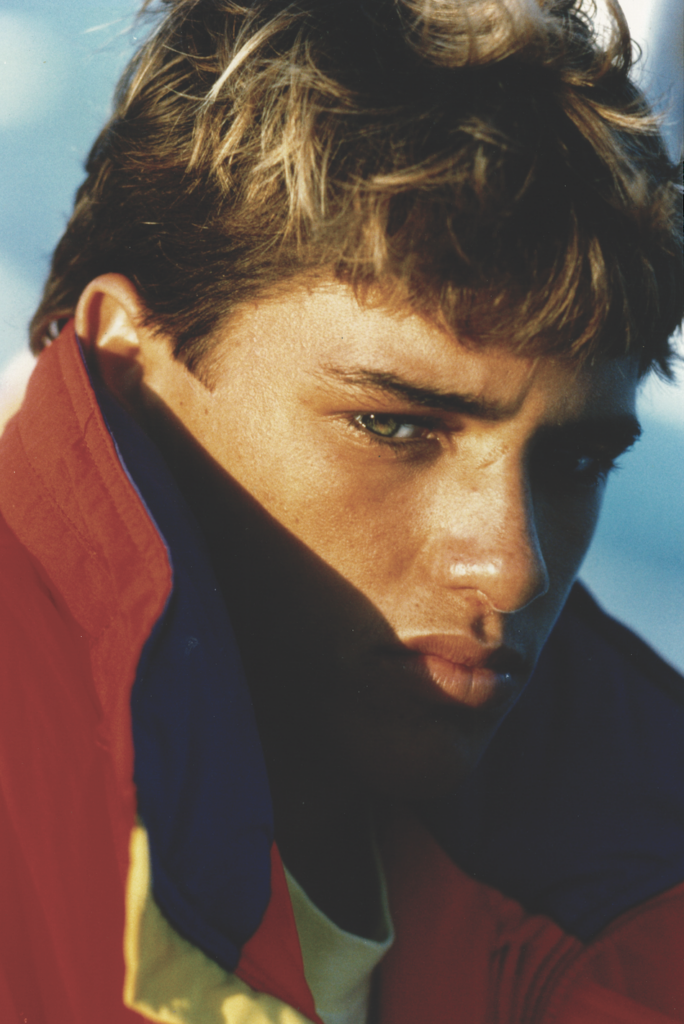
After his time competing on the pro tour in the 80s, Matt transitioned to surf journalism full-time. “It was inspired by this backstage feeling, of me going from a lead guitarist as a professional surfer to a roadie, as a journalist. I had something very valuable: I had backstage access to an entire surfing world. In those days, Surfer Magazine was truly the bible of a fantastic religion. And I was writing the book of Matthew.”
The profile piece is his forte. He used to have a policy that he wouldn’t take any profile assignments unless he was able to live with his subject for a minimum of five days. If there should require an interpretation of his book title, In Deep, may it be in the depth he goes to understand a person by observing how they interact with the world. “I don’t care what anyone says. I care about what they’re not saying,” is his mantra.
The next time I see Matt he’s wearing a bandana over his bald head, which he often does. I realize he reminds me of the late novelist and journalist David Foster Wallace. Wallace, who also wore a trademark bandana, once wrote a famed piece called Consider the Lobster. On assignment from a culinary magazine to cover the Annual Maine Lobster Festival, Wallace brushed through the expected description of family fanfare and into a shockingly deep dive on the nervous system of a lobster and the ethics of boiling a sentient creature alive.
Matt’s been known to write contest coverage without mentioning a single score. Instead, for example, he’ll write things like a time-stamped recount of the bloody and boozy debauchery of Herbie Fletcher’s Second Annual Cabo Classic. Like Wallace, Matt enjoys depicting the giant fireball of gluttony and hedonism never more than just two steps behind us, ready to eat us alive.

On an uncharacteristically quiet night at White Monkey Surf Shop, a week after our first meeting, Matt reads an excerpt from his book to a small audience. He chooses Red Water, a piece about a young Bethany Hamilton in the wake of her 2003 shark attack.
He’s only a few paragraphs into the story when two young women enter off the street onto the small patio area and begin talking loudly between themselves. Now look, I know Bali is not a typical arena for titans of literature. On several nights of the week, the White Monkey tiki bar is the watering hole for the youngest and rowdiest crowd on the Bukit — possibly the worst venue for a book reading.
You can hear the women over Matt’s words, despite his microphone. Matt stops reading and puts the book down. The girls stop talking. Matt picks up again. The girls start talking. Now it’s all quite tense. The audience is uncomfortable. I watch Matt’s face as he closes his eyes and furrows his brows. I think I’m about to witness a blow-up on two drunk tourists who chose the wrong night to party.
“May I help you, ladies?” Matt asks.
There’s a pause.
“We’ve had a scooter accident,” one of the girls says sheepishly.

Commence a fifteen-minute intermission where Matt, a former EMT, sutures up a bloody road-rash leg, just to the side of his audience. He sends the women off and returns to the microphone. “Anyway,” he sighs, picking up where he left off — the part when thirteen-year-old Bethany Hamilton is spewing blood from her freshly severed arm.
The audience is deadly silent. The piece isn’t funny, but with the juxtaposition of it all and with Matt’s stern, deep voice, I am holding in a laugh. I later ask Matt what he means when he says surfing has run out of time. “You think people have time anymore for profile writing? No. Surf writing, without question, has run out of time. The internet has created this hysterical pace for information and communication. And the only way for you to participate is for you to put out your own short little visual bits.
“Everyone’s their own press agent these days. We don’t know who they really are. These surfers are our heroes and we worship them. It’s important who the fuck they are because they form who you are.”
Every generation has its plight. For today’s children, it’s navigating a connection-starved society. But wouldn’t it make sense that this in turn creates a higher demand for authenticity? That the end result is that we all step up our game in terms of what we bring to the table?
“As evangelical as I am about surfing, I certainly hope so. I pray for that. I would love for people to be hungry for it. But when you have generations that have never had it, how should they know what a strawberry tastes like?”
Click here to purchase In Deep: The Collected Surf Writings
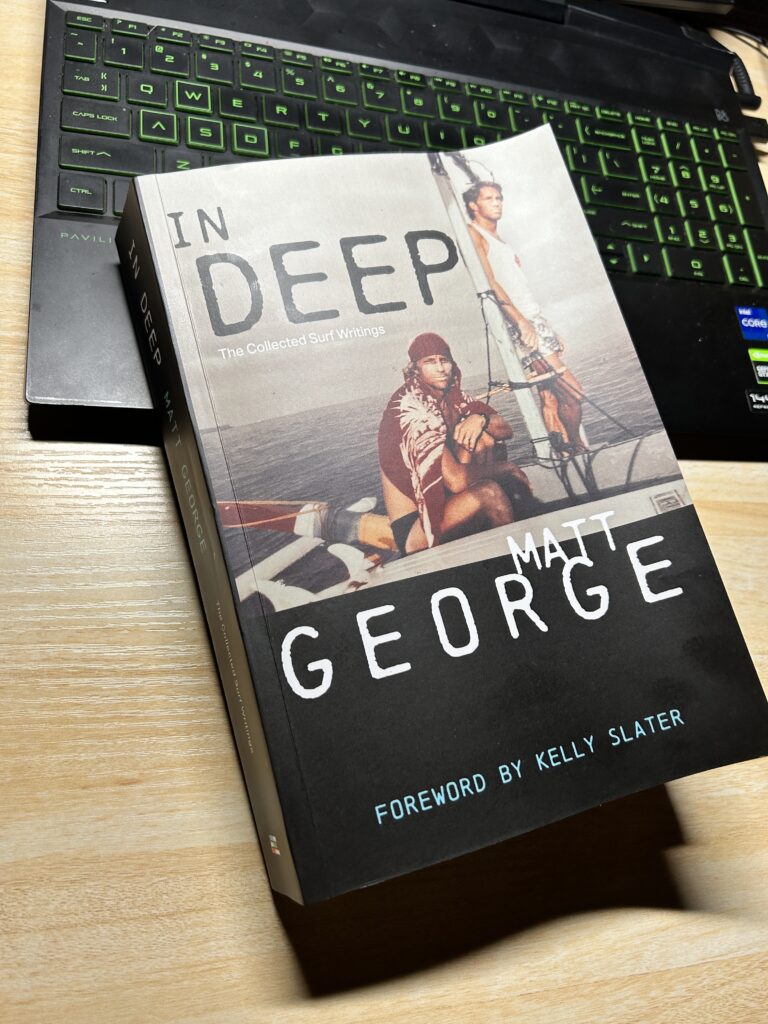


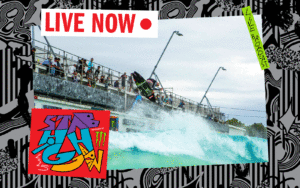
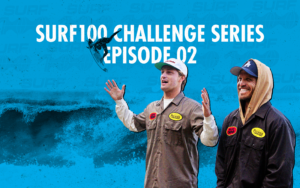









Comments
Comments are a Stab Premium feature. Gotta join to talk shop.
Already a member? Sign In
Want to join? Sign Up